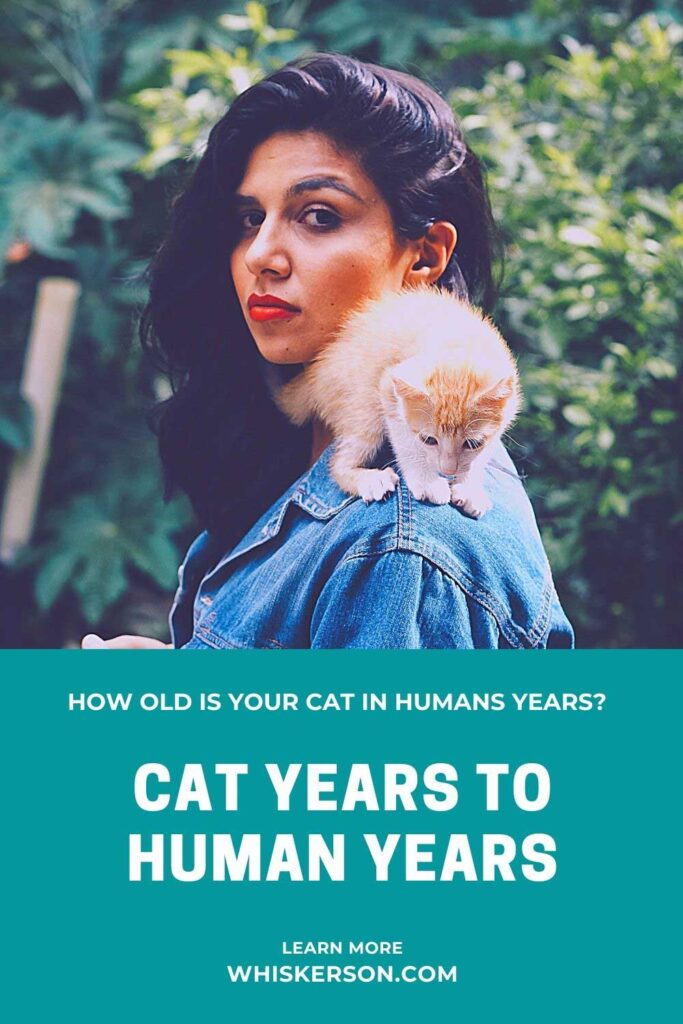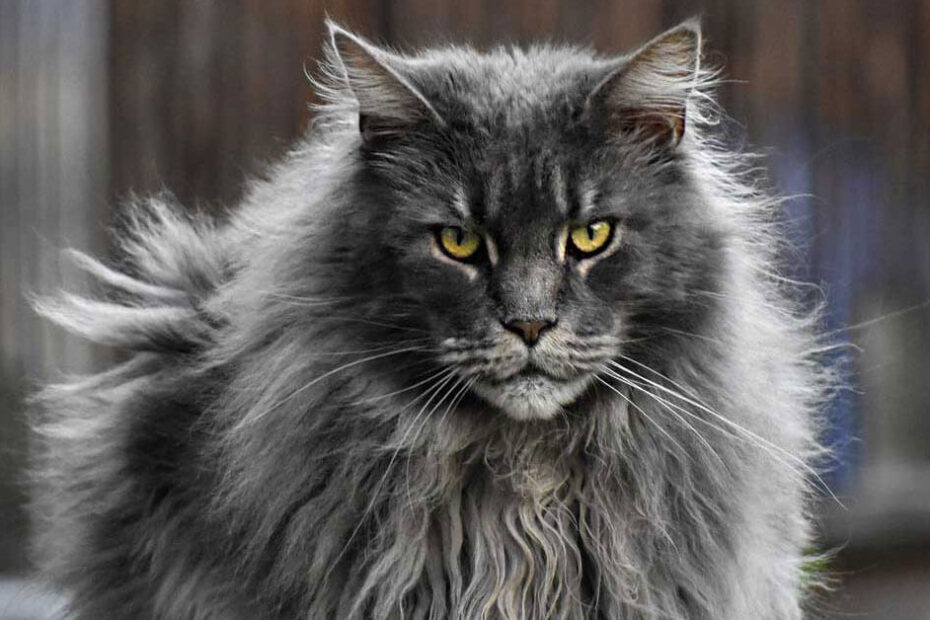Curious about calculating cat years to human years? We will demonstrate an easy-to-remember formula that you can use whenever you want.

You probably have heard the old rule of thumb that you can calculate your dog’s or cat’s age by multiplying each year by 7.
Well, it’s time to throw that one out the window.
You will be surprised to read how easy it is to get a better read on your cat’s physiological age.
Our cat year table will make it easier for you to know your cat’s age in human years.
Wanna know how old your cat really is? Let’s find out!
What Does “Age” Mean with Cats?
We’re not talking calendar years here. When discussing a cat’s age, we are talking about its physical and behavioral changes and how they compare at points in time to that of an average human.
How To Calculate Cat Years to Human Years
Just like people, some cats age a little differently than others, but here are the seven benchmarks that will usually be pretty much on the money when figuring out the age of your cat:
- 1 month = Cat age 1 year
- 3 months = Cat age 4 years
- 6 months = Cat age 10 years
- 1 year = Cat age 15 years (your cat’s a teenager and might act like it!)
- 18 months = Cat age 21 years
- 2 years = Cat age 24 years
- Every calendar year after = Add 4 human years
You can see that your kitty will “age” very quickly during the first two years, but then it will slow down by adding 4 “cat years” each time you celebrate your furball’s birthday.
What Are The Stages Of A Cat’s Life?
You will be happy to learn that cats can easily live 20-25 years. That’s the equivalent of 96-116 human years!
Just as we do for people, we generally categorize cats based on their age. Here’s how it works for your cat:
- Kitten = 1 calendar year (15 human years)
- Junior = between 1st and 2nd calendar years (15-24 human years)
- Adult = between the 2nd and 11th calendar years (24-60 human years)
- Senior = from the 11th to 15th calendar years (60-76 human years)
- Geriatric = from the 15th calendar year forward (76 human years and over)
Does Breed or Size Affect Aging?
Unlike dogs and how little ones tend to live longer than bigger ones, breed and size don’t play much of a role in how your cat ages.
Do Indoor & Outdoor Cats Age the Same?
As the parent of a cat, you will decide whether your cat lives indoors or outdoors and you might be concerned about the impact of your decision on your cat’s aging process. The jury is out – there are a lot of opinions but there is no definitive scientific answer to this question. It’s your call but read on to learn the arguments on either side.
On the one hand, outdoor cats can be exposed to more trauma and infectious diseases that could shorten their lives, but on a positive note, they have plenty of natural, healthy stimulation to keep them fit and alert.
On the other hand, indoor cats are protected from all that prospective trauma and disease, but they miss out on all-natural, healthy stimulation associated with being outdoors.
Why You Should Know Your Cat’s Age
Because your cat’s “age” is determined by physical and behavioral characteristics as they correspond with human ones, it makes sense that it is important to know your cat’s age in “cat years” so that you can provide it with proper care and nutrition.
Just like with people, among the most critical years in your kitty’s life can be calendar years 7 through 10. This is when your cat becomes a middle-aged member of your household – or the equivalent of between 44 and 56 in human years.
Middle age is when you and your vet have to be on the lookout for things like cancer, arthritis, or diseases of the liver, heart, or kidneys. Consequently, pay a little closer attention to your cat’s health during these years so that you can keep it healthy and happy for many years to come.
How Can I Help My Cat Age Gracefully?
Final tips on how you can help your cat enjoy a long, healthy, and happy life the same way that you can help ensure one for yourself. Here are the three things that you can do:
- Diet
Feed your cat quality, yummy food that is appropriate for its age. - Weight
Don’t overfeed your furball, and make sure that it gets enough exercise by playing with it and giving it toys that it enjoys. - Healthcare
Regular check-ups and visits to the vet when things don’t seem right.
